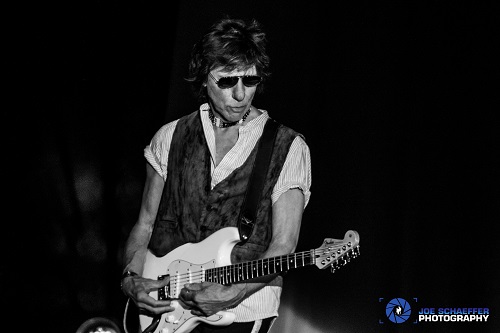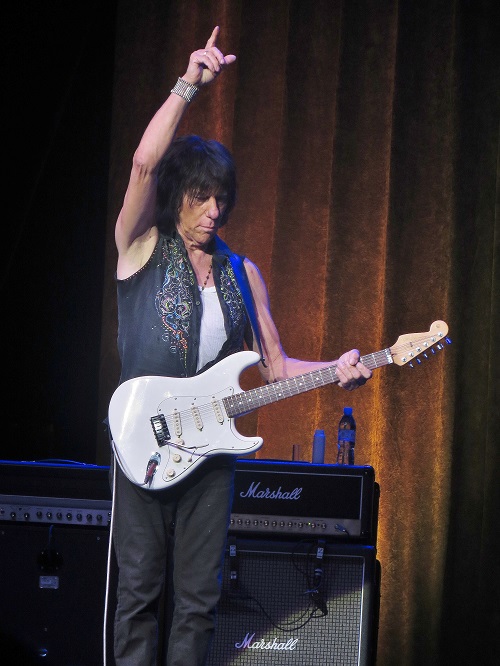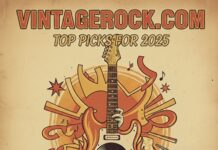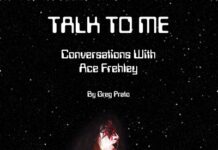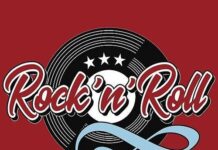By Shawn Perry
Live photos by Junkman, Ron Lyon & Joe Schaeffer
News of Jeff Beck’s passing came out of nowhere. It was just a few months ago that he’d released an album with Johnny Depp called 18 and was on the road promoting it. Now, one of the world’s mightiest guitarists was gone. He was 78, but unlike so like so many of his contemporaries, remarkably prolific, still recording, collaborating, and touring. It seems like with time running out and more musicians from the Vintage Rock era leaving us, Jeff Beck would be the last to go. But alas it isn’t so.
Beck died on Tuesday, January 10, 2023, from bacterial meningitis, a terrifying infection that strikes suddenly. Further details have not been revealed at the time of this writing. There is no doubt, however, that the impact of his death is reverberating and will continue to do so through out the world of music.
If you know anything about Jeff Beck, you know he didn’t take the easy road to stardom. Some would speculate he sabotaged it — several times. Depending on who you ask, he either left or was fired from the Yardbirds — possibly both. There’s no argument that his time with them was well-served, as it showcased his unique style. After that, he started his own group with Rod Stewart on vocals and Ron Wood on bass. Soon after, his childhood friend, guitarist Jimmy Page, who had joined the Yardbirds at Beck’s urging and stayed until they broke up, founded a band of his own. They were called Led Zeppelin.
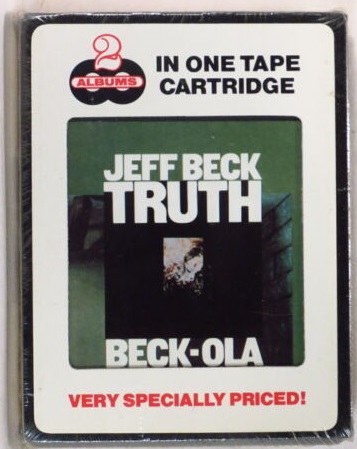
The Jeff Beck Group showed just before Cream broke up and Led Zeppelin broke out. Two albums — 1968’s Truth and 1969’s Beck-Ola — showed great potential of possible things to come. The group was even asked to perform at Woodstock. Once again, Beck’s temperament and inability to play nicely with others, lead to a break with Stewart and Wood, who went on to form Faces with three-quarters of Small Faces. Even so, Jeff Beck was still a highly regarded guitarist in the 1960s, and could have joined the Rolling Stones or Pink Floyd if he had played his cards right. Chances are, he folded every hand.
Beck planned to work with drummer Carmine Appice and bassist Tim Bogert of Vanilla Fudge, but when the guitarist got into a near-fatal auto accident in December 1969, that project was put on hold. Once he recovered, he formed a new version of The Jeff Beck Group with drummer Cozy Powell, singer Bobby Tench, keyboard player Max Middleton, and bassist Clive Chaman. The quintet recorded two funky and soulful, yet edgy albums before Beck decided to have another go with Appice and Bogert. The trio recorded Beck, Bogert and Appice, featuring Stevie Wonder’s “Superstition,” which was originally gifted to Beck by Wonder after the guitarist worked with the singer. Wonder’s label Motown had other ideas, and immediately released Wonder’s version before BBA’s. Plans were in place for a second record, but the group splintered.
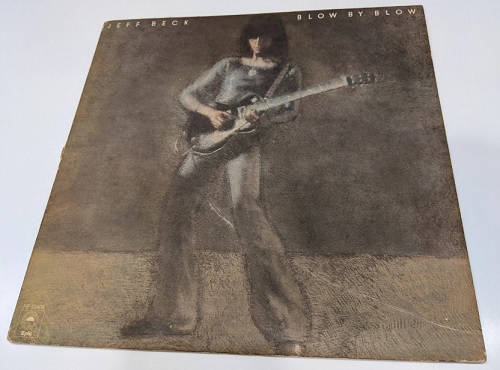
In 1975, Beck recorded Blow By Blow with famed producer George Martin, and inadvertently became a pioneer of the jazz-rock fusion guitar instrumental world. Wired (1976) and There & Back (1980) followed as Beck’s style of playing became noticeably experimental and revered. It was like he didn’t need a singer anymore because he could make his instrument sing. Sessions with such high-caliber players as keyboardist Jan Hammer, bassist Stanley Clarke, and drummer Simon Phillips only expanded his range. Even though Jimmy Page and Eric Clapton had enjoyed more commercial success, there was no comparison when it came to what Beck could do with the guitar.
Page, Clapton, and Beck came together in 1983 for the ARMS Charity Concerts, in support of Action into Research for Multiple Sclerosis, any questions about which one of the three six-string slingers was a true master of the instrument were quickly put to rest. Clapton played a hits-filled set, Page, in heavy mourning after breaking Led Zeppelin up, meandered through a haphazard version of “Stairway To Heaven.” Night after night during the short tour, Jeff Beck punched in solid sets of guitar histrionics for stunned audiences.
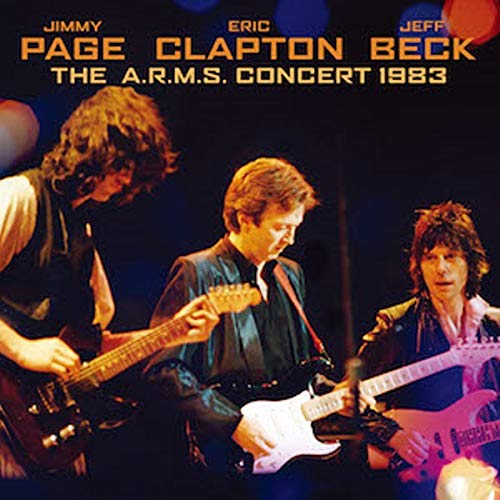
In the 1980s and into 1990s, Beck continued recording. He issued Flash, which featured a version of Curtis Mayfield’s “People Get Ready” with old bandmate Rod Stewart, in 1985 before returning to an all-instrumental format in 1989 with keyboardist Tony Hymas and drummer Terry Bozzio for Jeff Beck’s Guitar Shop. Both albums won Grammys. In the mid-90s, Beck paid tribute to guitarist Cliff Gallup of Gene Vincent and His Blue Caps with the rockabilly-flavored Crazy Legs. He was not only exploring his roots; he was also building on his versatility.
During that period, the guitarist also did a number of high-profile sessions for Tina Turner, Kate Bush and Roger Waters (among others) — a practice he would return to now and then, with one of his latest (if not his last) playing a solo on the title track of Ozzy Osbourne’s 2022 album, Patient Number 9. It’s hard to say if session work made Beck a rich man, though it’s likely any extra money he earned helped maintain his passion for hot rods. Tinkering on his cars, with an overview of his career, are all on full display in the 2018 documentary Still On The Run: The Jeff Beck Story.
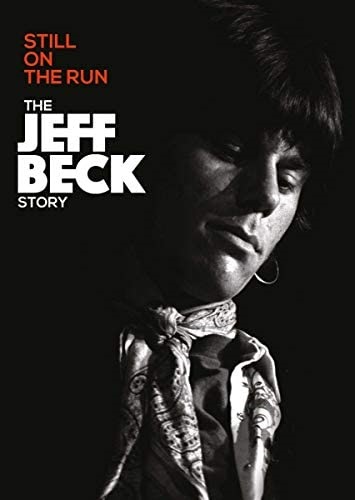
Who Else!, featured another guitarist Jennifer Batten, the first of many female musicians whom Beck would feature on his records. His status intact and his legend assured, the guitarist would record five albums in the 21st century. He made a few orchestral maneuvers on 2010’s Emotion & Commotion, and forged an alliance with British singer Rosie Bones and guitarist Carmen Vandenberg of Bones UK to make 2016’s Loud Hailer. That same year, Beck celebrated his 50-year career with a star-studded concert at the Hollywood Bowl. You couldn’t have gotten a more complete picture of the man’s work. And I was only too happy to witness it.
Actually, I had the privilege of watching Jeff Beck manhandle a guitar on stage on many occasions. The first was at the Greek Theatre in 1980. From there, I saw shows during tours behind Jeff Beck’s Guitar Shop, Who Else!, and Emotion & Commotion. There was that night he played in Las Vegas with ZZ Top. And another night he played the Grove in Anaheim, and keyboardist Keith Emerson was sitting at the next table. I kept hoping Beck would ask Emerson to come up for a number or two, but it never materialized. So sad it never will.
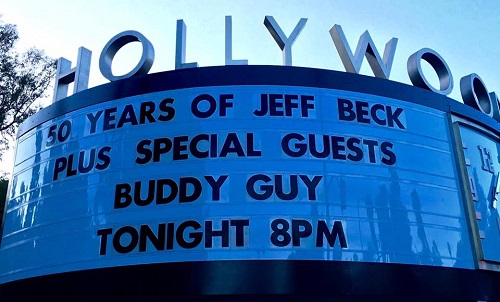
I also had a couple close encounters with Jeff Beck — both at two different NAMM shows in Anaheim. The first time was 1985 and I was with a guitarist friend of mine who was just making a name for himself. At one point, we were standing in the lobby of the Hilton, which was packed with NAMM attendees. We had come downstairs from Neal Schon’s suite, accompanied by few others including a photographer. As soon as we exited the elevator, there was Jeff Beck with guitar pickups guru Seymour Duncan. The photographer managed to pull my friend in for a quick photo. Beck, wearing sunglasses, was nonplussed and expressionless.
Moments later, a very inebriated Eddie Van Halen showed up. Here was two of the world’s most notorious guitar players face to face, and everyone within a hundred yards immediately closed in and surrounded the gathering, waiting to see what would happen next.
“You playing tonight?” Van Halen asked Beck. “Naw,” the guitarist bemusedly answered.
After Van Halen flashed his toothy trademark grin, I could have sworn I heard him mutter: “Pussy…” What happened after that remains a complete blur.
My second brush with Beck was a little less sensationalistic. It was years later when I cited the guitarist on the NAMM showroom floor, coming my way. No one else was around, so I innocently asked the guitarist for an autograph. He gave me the one-over and shook his head. His friend pointed at me and nodded. “Sure looks like him,” I thought I heard him say. “Hey, I’m just a fan,” I whispered. “Sorry mate…” was all Beck left me with. This was one of those never-meet-your-hero moments. Maybe I reminded him of an ex bandmate. Sure, I was a little disappointed, but I never let that get in the way of my appreciation for the music. I tried for years to interview him, only to be turned away. I was told he didn’t like doing interviews, and I completely understood.
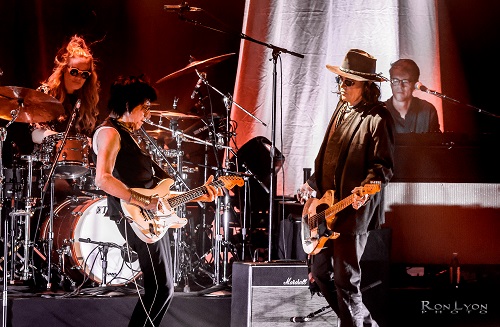
Beck’s partnership with Johnny Depp didn’t quite meet up with a lot of fans’ expectations, least of all, mine. I didn’t even make it out to a show. Seeing him play a bill with Ann Wilson and Paul Rodgers in 2018 would be the last time for me. Thankfully, Beck and his band were impressive that day.
In my book, Jeff Beck as a guitarist was and remains second to none. I’d even put him above Jimi Hendrix. Let’s face it: he had a lot more time on this earth to refine his craft to the point where it was practically an extension of his being. Put a Stratocaster in his hands, and he could make it tunefully moan, scream, squeal, howl and roar. For all his faults, temperament and miscalculations, Jeff Beck may have been and will perhaps be remembered as the greatest, most inventive rock and roll guitarist who ever lived. Given the number of players, there may be some debate. Still, the odds of getting much of an argument about it seem incredibly low.
